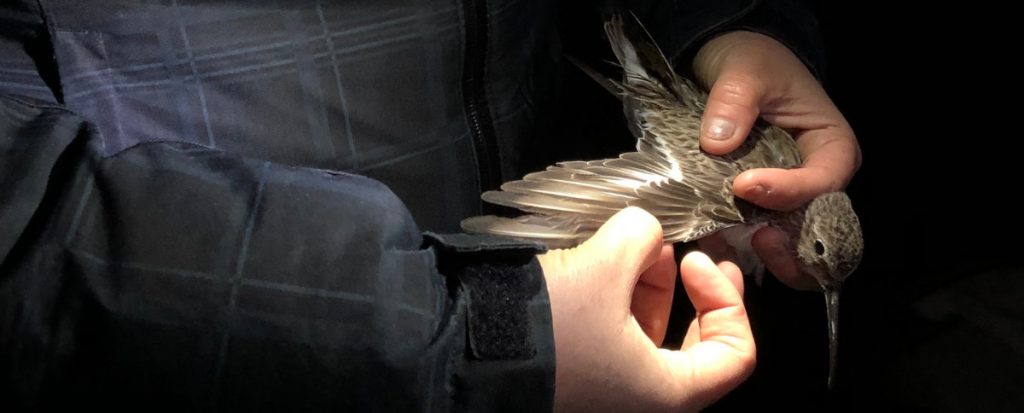Western Sandpiper Program

The mudflats of the Fraser River estuary provide important foraging habitat to millions of migrating shorebirds every year, allowing them to successfully travel the vast distances between their wintering and breeding grounds. However, these visitors face numerous threats throughout their range, from habitat loss and environmental contaminants to climate change. In order to protect shorebirds, we need to understand where these birds are spending their time and where to focus conservation action.
Beginning in 2020, WildResearch and Environment and Climate Change Canada launched the For two years (2020-2021), WildResearch and Environment and Climate Change Canada launched the Western Sandpiper Program, which aimed to better understand the movement ecology of Western Sandpipers at the mouth of the Fraser River Delta. Birds were captured and fitted with radio nanotags at Iona Island Regional Park and Robert’s Bank during the spring and late summer. These tags allow scientists to track individual birds as they migrate between Alaska and the coasts of California, Central America, or South America, with a particular focus on how they spend their time at important stopover sites in the Fraser River estuary. These tracking efforts were paired with regular shorebird surveys at Iona Beach Regional Park during migration to better understand habitat use by the overall shorebird community.
This project has officially ended, and the data are being analyzed. Future shorebird projects are being pursued and may provide an opportunity for our volunteers to gain experience capturing, handling, and banding shorebirds. Keep an eye on WildResearch news for updates on the results form this project as well as announcements for future shorebird projects.